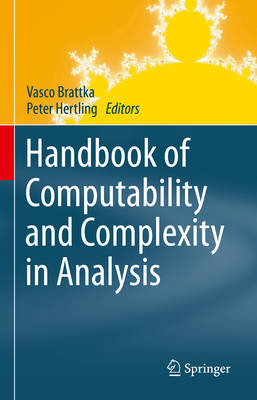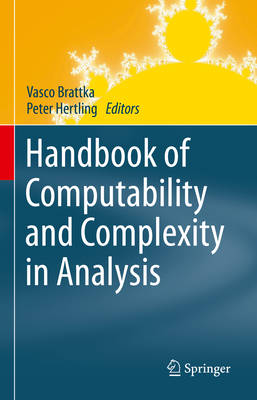
- Afhalen na 1 uur in een winkel met voorraad
- Gratis thuislevering in België vanaf € 30
- Ruim aanbod met 7 miljoen producten
- Afhalen na 1 uur in een winkel met voorraad
- Gratis thuislevering in België vanaf € 30
- Ruim aanbod met 7 miljoen producten
Handbook of Computability and Complexity in Analysis
Omschrijving
Computable analysis is the modern theory of computability and complexity in analysis that arose out of Turing's seminal work in the 1930s. This was motivated by questions such as: which real numbers and real number functions are computable, and which mathematical tasks in analysis can be solved by algorithmic means?
Nowadays this theory has many different facets that embrace topics from computability theory, algorithmic randomness, computational complexity, dynamical systems, fractals, and analog computers, up to logic, descriptive set theory, constructivism, and reverse mathematics. In recent decades computable analysis has invaded many branches of analysis, and researchers have studied computability and complexity questions arising from real and complex analysis, functional analysis, and the theory of differential equations, up to (geometric) measure theory and topology.
This handbook represents the first coherent cross-section through most active research topics on the more theoretical side of the field. It contains 11 chapters grouped into parts on computability in analysis; complexity, dynamics, and randomness; and constructivity, logic, and descriptive complexity. All chapters are written by leading experts working at the cutting edge of the respective topic. Researchers and graduate students in the areas of theoretical computer science and mathematical logic will find systematic introductions into many branches of computable analysis, and a wealth of information and references that will help them to navigate the modern research literature in this field.
Specificaties
Betrokkenen
- Uitgeverij:
Inhoud
- Aantal bladzijden:
- 427
- Taal:
- Engels
- Reeks:
Eigenschappen
- Productcode (EAN):
- 9783030592332
- Verschijningsdatum:
- 5/06/2021
- Uitvoering:
- Hardcover
- Afmetingen:
- 155 mm x 26 mm

Alleen bij Standaard Boekhandel
Beoordelingen
We publiceren alleen reviews die voldoen aan de voorwaarden voor reviews. Bekijk onze voorwaarden voor reviews.








